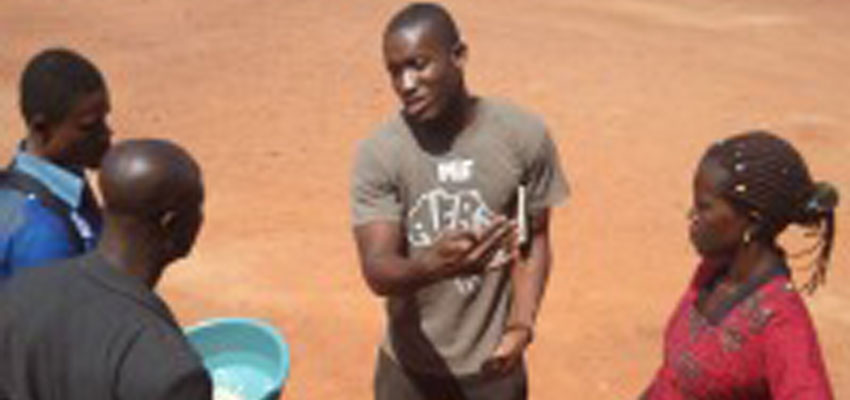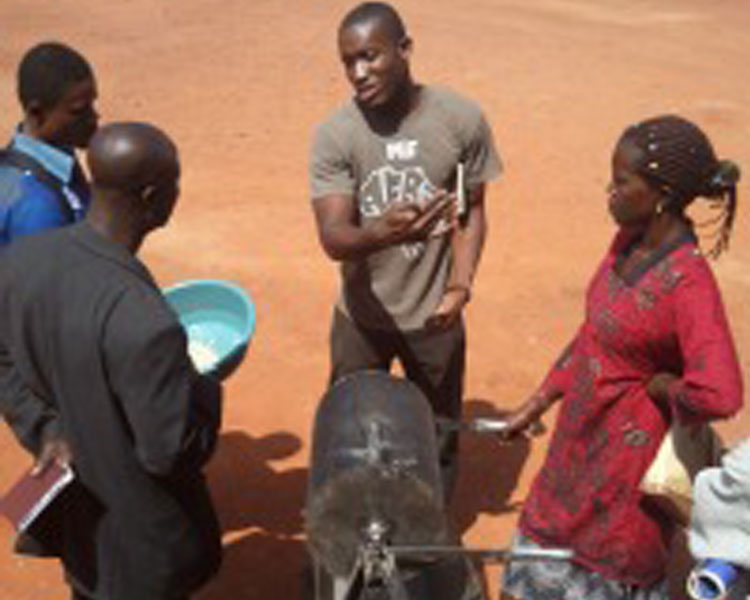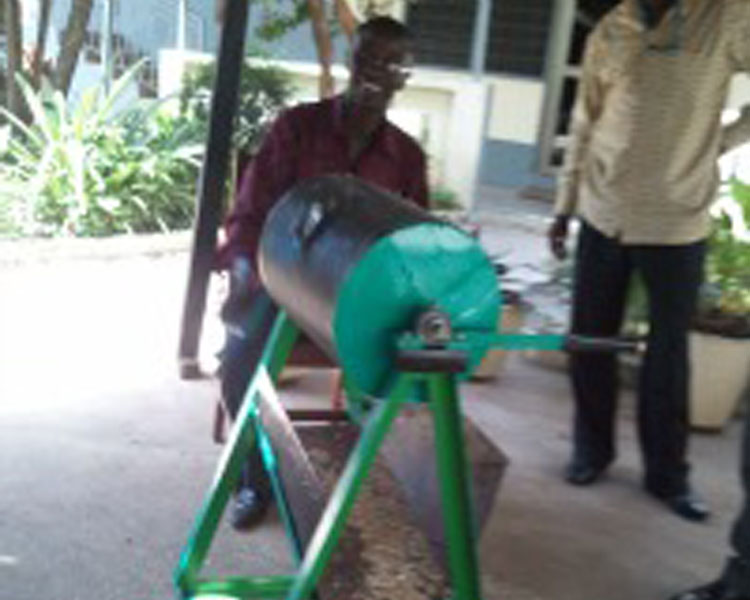
It was great spending time on the ground in Ghana in January and February. Along with our luggage, we brought new CAD designs for both our Moringa seed sheller and oil press, newly machined parts for the oil press to test alongside locally fabricated components, a list of every organization we had found working with Moringa in Ghana, and a schedule for meeting with them all. And, best of all, we had with us the great minds, enthusiasm, and support of the D-Lab: Development Ghana and Tanzania teams.
Throughout January, we worked with the D-Lab Development class Ghana and Tanzania Moringa team members to transform CAD images into functional, improved iterations of our technologies. The teams worked in parallel on providing more rigorous test data on the sheller performance and assessing the landscape of organizations already growing or interested in cultivating Moringa. We saw the proof of concept I made in Ghana in July 2012 morph into even better devices with the help of the Moringa team of students, and by the end of February, a device that gives the user the flexibility of using either a foot pedal or hand-crank to shell 6-8 kg of Moringa per hour (left image). A performance metric that has motivated more order requests from our partners!
Sadly, our work with the oil press wasn’t as successful, but this is the nature of R&D. The newest design didn’t meet our performance goals and local fabricators in Ghana, though very talented, couldn’t guarantee the precision we needed on some key components. On the bright side, our partners confirmed that access to electricity was much higher than indicated by their initial survey of the farming groups. This insight is really encouraging to us because it has opened up the design process to a field of ideas and existing technologies that are not human-powered.
More than our technologies converging into finalized products, we are excited about some growing and new connections to community partners in Ghana. We got to participate in and connect farmers to Moringa and entrepreneurship workshops sponsored by our main partner in Ghana, Ghana Permaculture Institute (GPI). The four day event taught participants everything from basic business management skills to how to make Moringa tea and soap for personal consumption and sale. As our partnership with GPI deepens, we happy to also see those with Global Moringa and the Ghana PCV grow and new ones with organizations like Ghana United Nations Development Program (UNDP), MoringaRevealed, and It’sMoringa start.
Looking forward, we will continue our R&D of the Moringa oil press and a motorized Moringa sheller, invest more time into securing additional Moringa oil buyers, fine-tune our business model, incorporate our venture, and finalize details for our summer pilot! We are inspired more than ever and realize that the need is much bigger than just helping Moringa farmers capture value that they are currently losing.
Rather, it’s finding innovative ways to help subsistence and small acreage farmers utilize their land to its fullest economic and social potential by connecting them to specialty crops; to value-added processing technologies; to knowledge resources on cultivation, consumption, and processing of these crops; and to buyers in the global market. It’s about time farmers are equipped to play their role in Africa’s new story of positive change and progress.



